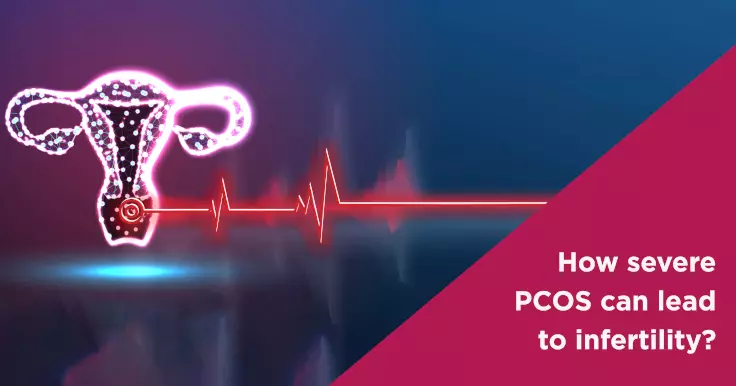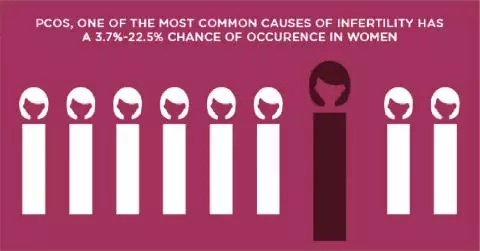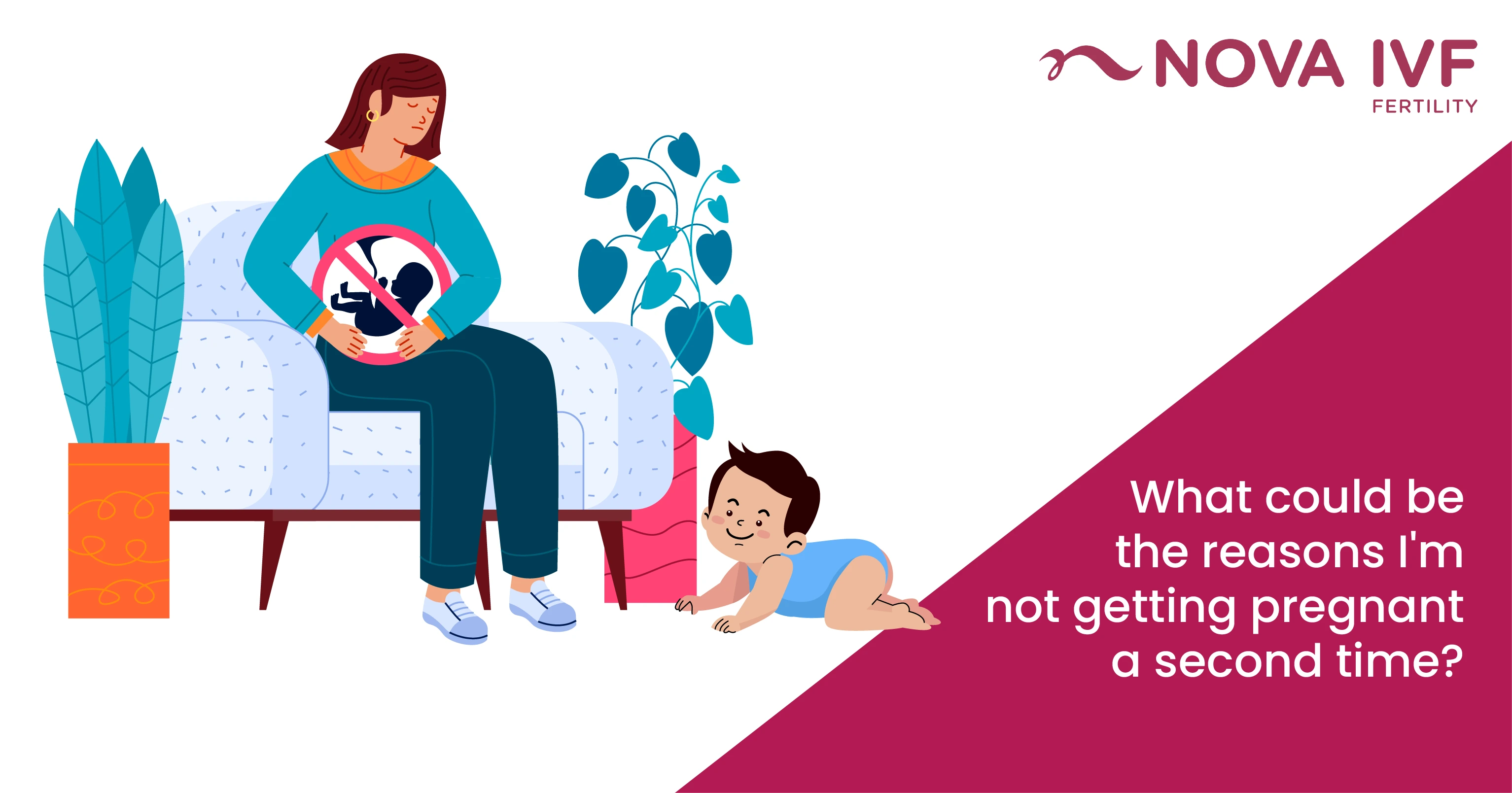Does PCOS Lead To Infertility?

Almost every woman with Polycystic Ovarian Syndrome or PCOS has one question always on her mind - can PCOS lead to infertility?' The answer is yes, severe PCOS can lead to infertility as it can affect ovulation.
PCOS is not a disease in itself but a collection of symptoms that indicate altered hormone levels. It is called Polycystic because the syndrome results in the development of small cysts or fluid-filled sacs on the rim of the ovaries. Along with ovarian cysts, other symptoms of this syndrome are high amounts of male hormones and irregular periods.
How PCOS Causes Infertility
Each woman is born with a limited number of eggs in her ovaries. After puberty, one of these eggs matures fully each month and is released. If this egg is fertilized by sperm, it then gets implanted in the uterus and develops into a baby. There are two ways in which PCOS interferes with this process:
Disrupted Ovulation Cycle
Firstly, it disrupts the ovulation cycle. In the case of women with PCOS, when the eggs in her ovaries start to mature, the pituitary gland does not produce the hormones required for the eggs to develop. As a result, the eggs remain immature and are not released. The follicle sacs containing these eggs turn into cysts around the inner rim of the ovaries.
For a woman to get pregnant, sexual intercourse must take place after a mature egg has been released. This is usually 2 weeks after a period. Since the body does not release eggs regularly, women with PCOS have highly irregular periods. They may even miss a period of two. Many women with PCOS have no more than 8 periods in a year. This makes it very difficult for them to plan a pregnancy.
Shortened Luteal Phase
Secondly, PCOS can shorten the luteal phase that follows ovulation. This is the phase where the lining of the uterus thickens itself in order to prepare for a pregnancy. It usually lasts for about 12-14 days. When the body does not produce enough progesterone hormones, this luteal phase is shortened. As a result, the lining does not develop properly. This makes it very difficult for the fertilized egg to be implanted in the uterus. As a result, the menstrual cycle may continue as normal and woman may miscarry before she realized that she is pregnant.
Along with making it difficult for a woman to conceive, PCOS also increase the risks of pregnancy-related complications.
 Infertility Counselling
Infertility Counselling Female Infertility Treatment
Female Infertility Treatment Andrology Treatment
Andrology Treatment Fertility Enhancing Surgeries - Female
Fertility Enhancing Surgeries - Female Fertility Enhancing Surgeries - Male
Fertility Enhancing Surgeries - Male Endoscopy Treatment
Endoscopy Treatment IUI Treatment
IUI Treatment IVF Treatment
IVF Treatment ICSI Treatment
ICSI Treatment Advanced IVF Solutions
Advanced IVF Solutions Embryology
Embryology Vitrification Egg, Embryo, Sperm Freezing
Vitrification Egg, Embryo, Sperm Freezing Preimplantation Genetic Testing (PGT)
Preimplantation Genetic Testing (PGT) Donation Program Embryo / Egg / Sperm
Donation Program Embryo / Egg / Sperm Self-cycleTM IVF
Self-cycleTM IVF

 Self-cycleTM IVF
Self-cycleTM IVF










